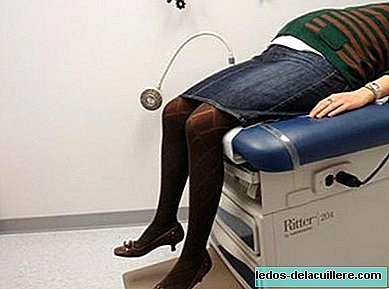
In the final stretch of pregnancy, between weeks 35 and 37, The gynecologist sends a routine analysis to the pregnant woman to find out if she has group B strep infection, what is known as a "streptococcus test".
Group B streptococci are bacteria that may be in the vagina of healthy women, which does not cause any damage. But the baby through the birth canal could become infected and infection in the newborn can be complicated. Between 10% and 30% of pregnant women are carriers of group B strep bacteria (GBS).
Who is affected by streptococcus?
GBS is one of many bacteria that live in the body and generally do not cause serious diseases. It is found in the digestive, urinary and reproductive tract of men and women and in women it can be lodged in the vagina and rectum.
Most pregnant women who are colonized with GBS do not have symptoms or their health is affected, but some may have a urinary tract infection or infection of the uterus due to the bacteria.
Then the most serious effect on health can occur: that in the final stage of pregnancy the infection is transmitted to the baby. That is why medical organizations have agreed on these recommendations on streptococcal infection which prevent infection of the newborn:
Perform a vaginal and anal culture to all pregnant women between the 35th and 37th week of gestation. Crops with more than five weeks may not be valid, so if the delivery is delayed they will have to be repeated.
If the pregnant woman has been infected by group B streptococci or a previous child was infected, prophylaxis measures will be carried out directly.
In cases where the culture or analysis of urine during pregnancy gave positive results and in mothers with previously infected children, intrapartum antibiotic prophylaxis for the prevention of neonatal infection is indicated.

How is the strep test performed?
The strep test in pregnancy is performed similarly to a vaginal cytology, analyzing vaginal and rectum samples using a smear. It is a painless procedure. Through this procedure, samples of cells from the lower part of the vagina and rectum will be taken and sent to a laboratory to grow in a culture that will identify if the streptococcus bacteria is present.
The results are available in two or three days and women who test positive receive intravenous antibiotics during labor to prevent infection of the newborn. Antibiotics help eliminate these bacteria that can be harmful during childbirth. If administered before delivery, they are likely to reproduce.
On the other hand, if germs are detected in the urine in any of the tests during pregnancy, oral antibiotics are prescribed and a test is performed at the end of the treatment to see if the GBS has disappeared. But it is likely that bacteria residues remain in the genital area, or the bacteria invades the genital area later.
If the urine contains group B streptococcus, it is a sign that there is a significant amount of that bacterium in the genital area, so antibiotics are usually given intravenously automatically during delivery.
The tests before week 35 cannot predict whether the woman will be a carrier of the bacteria at the time of delivery, so it is done in that final stage. If the delivery is delayed beyond week 40, the doctor may send another test to make sure there are still no streptococci, as we have said above.
If the woman already had a previous pregnancy and was treated by streptococci, it is likely that they will not do the analysis with the subsequent children and the gynecologists directly recommend the treatment.
If once born Babies see symptoms of streptococcal infection (Not all babies exposed to GBS become infected) and an infection is suspected treatment with active antibiotics against streptococcus will be initiated. Subsequent treatment will depend on clinical evolution and diagnostic evaluation.
Most babies recover fully, although in some cases they may present complications, even in the most severe cases of death.
In short, in order to avoid these risks, they are performed screening tests for group B streptococcus bacteria in the final stages of a woman's pregnancy.
Photos | Daquella way on Flickr-CC and Wikimedia Commons On Babies and more | Prenatal tests: streptococcal infection, Recommendations on streptococcal infection in pregnant women












